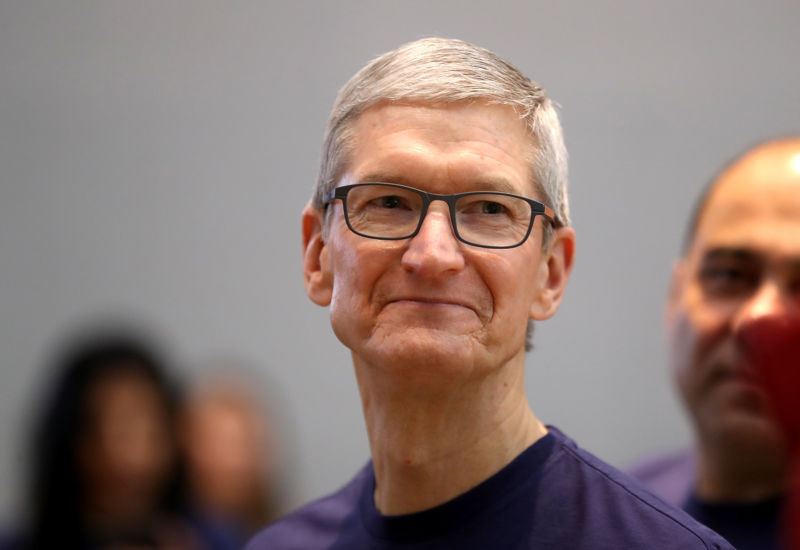Apple’s value soars to a record $2 trillion

Apple’s market capitalization hit $2 trillion on Wednesday, making Apple the first company outside Saudi Arabia to reach that milestone. Saudi Arabia’s state-owned oil company, Saudi Aramco, was briefly valued at $2 trillion last December, but Apple surpassed its value last month.
The new milestone comes just two years after Apple first reached a market capitalization of $1 trillion. It’s particularly remarkable because Apple market capitalization was below $1 trillion as recently as March, when fears of a coronavirus-induced recession were battering stocks across the board.
But while the coronavirus has created economic hardship for many companies and workers, it’s been a boon to Apple and other big technology firms. Unable to spend cash on experiences like dining out or going on vacation, consumers who still have jobs have splurged on digital gadgets instead.
The result: Apple enjoyed strong revenue and profits for its most recent quarter ending in June. The company raked in revenues of almost $60 billion, up 11 percent from the same quarter a year earlier. Earnings were $11.2 billion, up from $10 billion a year earlier.
For the January-to-March quarter, a period when many businesses were being forced to scale back operations, Apple reported revenues of $58 billion, up slightly from a year earlier.
The record valuation is a vindication for Apple CEO Tim Cook. Cook took over as CEO from an ailing Steve Jobs nine years ago. Apple under Cook has introduced fewer breakthrough products than it did during the 14-year tenure of Steve Jobs. The Apple Watch and AirPods are probably Apple’s most notable product introductions since 2011.
But Cook has leveraged his supply chain expertise to gradually expand Apple’s product line while maintaining the high quality of Apple devices. He has also found new ways to monetize Apple’s hardware with services like Apple Music. As a result, the iPhone and other Apple products have continued generating massive profits for Apple shareholders.
Apple’s size—and particularly its total control over the iPhone app ecosystem—has made it some enemies. Last month, members of Congress grilled Cook, alongside three other Big Tech executives, about the way Apple manages its App Store. The hearing was part of a year-long investigation into competition in the tech sector.
More recently, Epic Games sued over Apple’s policy of demanding a 30 percent cut of all in-app purchases. Epic argues the policy violates antitrust law.
https://arstechnica.com/?p=1700040